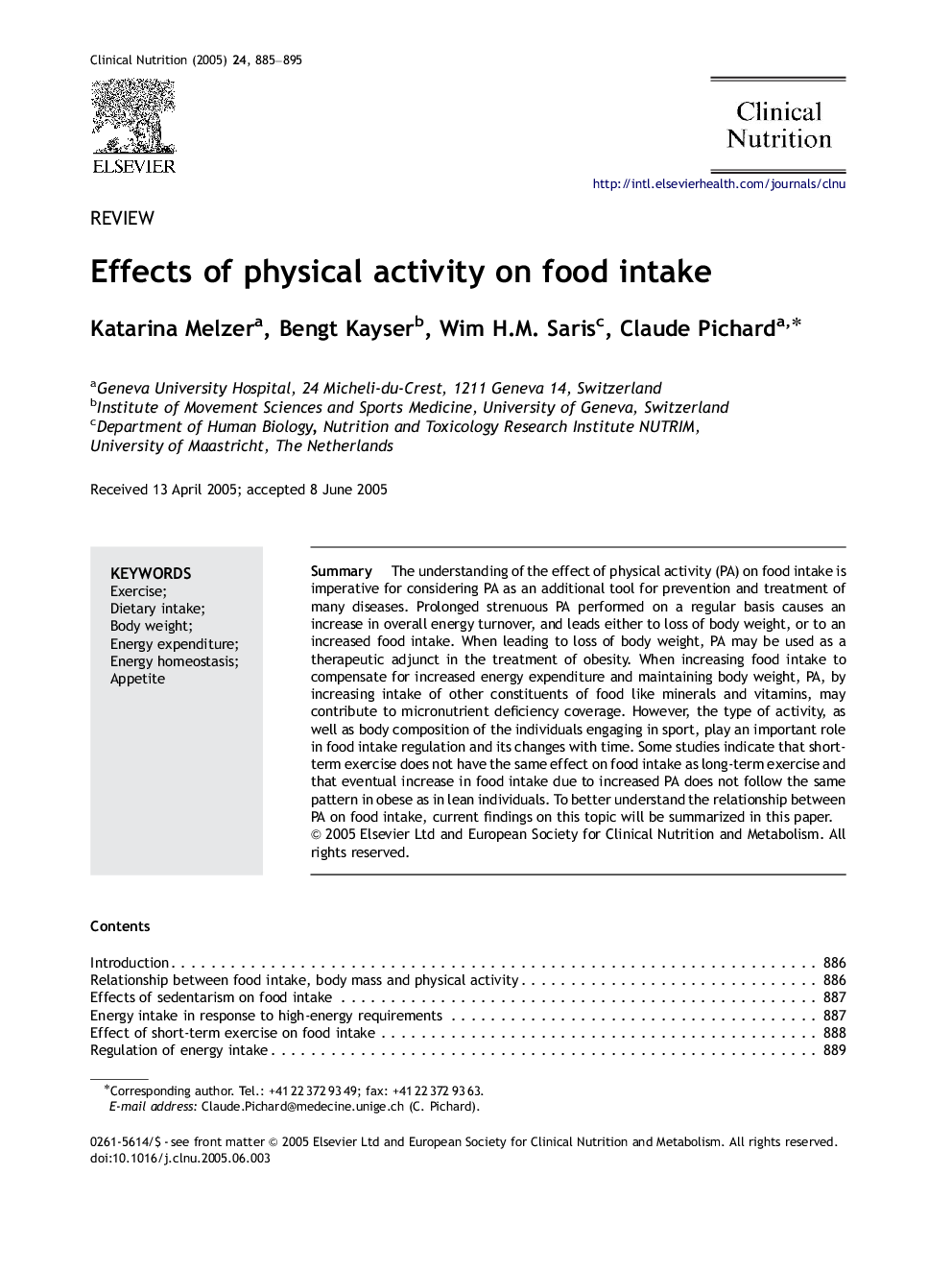| Article ID | Journal | Published Year | Pages | File Type |
|---|---|---|---|---|
| 9072613 | Clinical Nutrition | 2005 | 11 Pages |
Abstract
The understanding of the effect of physical activity (PA) on food intake is imperative for considering PA as an additional tool for prevention and treatment of many diseases. Prolonged strenuous PA performed on a regular basis causes an increase in overall energy turnover, and leads either to loss of body weight, or to an increased food intake. When leading to loss of body weight, PA may be used as a therapeutic adjunct in the treatment of obesity. When increasing food intake to compensate for increased energy expenditure and maintaining body weight, PA, by increasing intake of other constituents of food like minerals and vitamins, may contribute to micronutrient deficiency coverage. However, the type of activity, as well as body composition of the individuals engaging in sport, play an important role in food intake regulation and its changes with time. Some studies indicate that short-term exercise does not have the same effect on food intake as long-term exercise and that eventual increase in food intake due to increased PA does not follow the same pattern in obese as in lean individuals. To better understand the relationship between PA on food intake, current findings on this topic will be summarized in this paper.
Related Topics
Health Sciences
Medicine and Dentistry
Critical Care and Intensive Care Medicine
Authors
Katarina Melzer, Bengt Kayser, Wim H.M. Saris, Claude Pichard,
